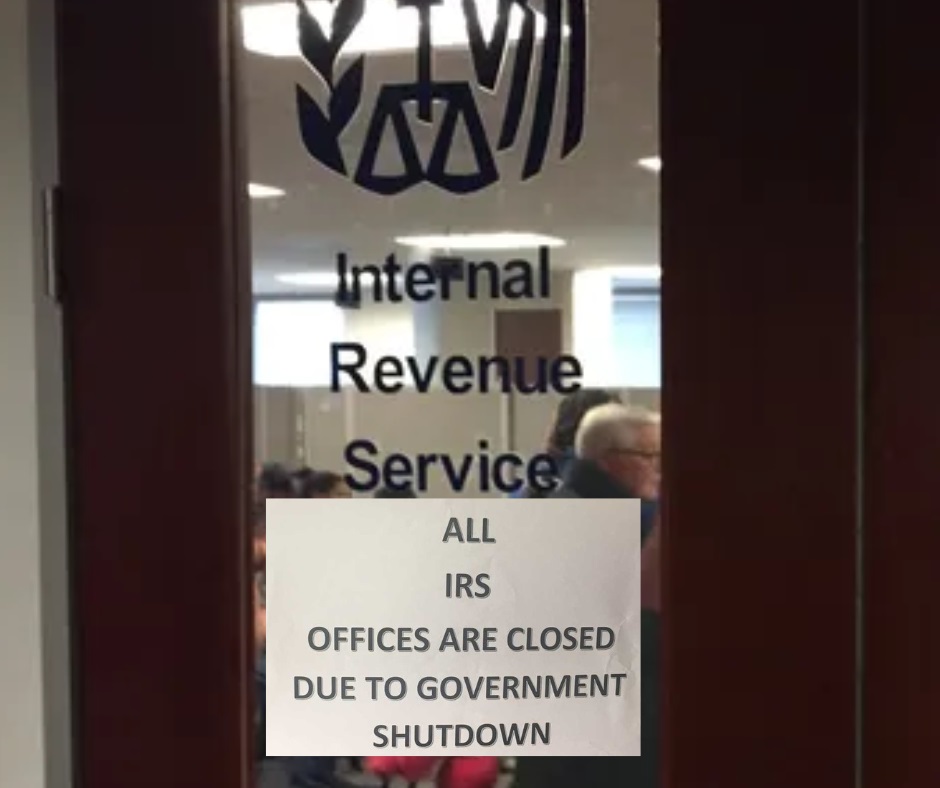
As October approaches, there is growing concern over the possibility of a government shutdown, which could have significant repercussions for the Internal Revenue Service (IRS) and taxpayers across the United States. The looming shutdown could disrupt crucial IRS operations, potentially affecting the timely processing of various tax returns and creating challenges for taxpayers and tax practitioners alike.
Key Tax Dates to Remember
- Extended 2022 Tax Returns (Due by October 16, 2023): Taxpayers who filed for an extension to submit their 2022 tax returns by October 16, 2023, may face delays in processing if a shutdown occurs.
- Tax-Exempt Organization Returns (Due November 15, 2023): Organizations with tax-exempt status must submit their returns by November 15, 2023, and this deadline could be impacted by a government shutdown.
- Expatriate Tax Returns (Due December 15, 2023): Expatriates who are required to file their tax returns by December 15, 2023, may also experience delays if the IRS operates with a reduced workforce due to a shutdown.
Furthermore, the potential government shutdown could spill over into the 2024 filing season, typically commencing in mid-January, leading to further delays in processing tax returns and providing essential services to taxpayers.
IRS Workforce Impact
The current situation has raised concerns that the IRS may be forced to partially shut down, affecting thousands of its employees. Recent reports indicate that contrary to previous assumptions, the IRS may not be able to continue its operations as usual during a government shutdown, even with funding from the Inflation Reduction Act. This could result in significant disruptions to taxpayer services.
Under the IRS’s contingency plan for a government shutdown, the following key points have emerged:
- Most Core Tax Administration Activities Would Cease: The IRS would be unable to carry out many essential functions, potentially impacting taxpayers’ ability to file returns, pay taxes, obtain refunds, address automated collection notices, deal with audit issues, or seek assistance from the IRS for tax-related questions.
- Potential Furlough of IRS Employees: Nearly 60,000 IRS employees could be furloughed, further straining the agency’s ability to provide essential services.
- Limited Services with a Reduced Workforce: Some services may continue, but they would be supported by only about a third of the IRS workforce, creating a significant backlog and delays for taxpayers.
Stay Informed
The National Treasury Employees Union (NTEU) has indicated that the IRS is in the process of developing a new contingency plan to address the potential government shutdown in 2023. Details of this plan and how it may impact taxpayers and practitioners are still forthcoming.
It is important to stay informed about the situation and any updates from the IRS and other relevant authorities. As the potential government shutdown looms closer, uncertainties persist regarding how the IRS will implement its contingency plan and the extent to which it will affect taxpayers and their taxes.
In these uncertain times, taxpayers are encouraged to prepare for potential disruptions by staying updated on developments and seeking professional guidance as necessary. The impact of a government shutdown on IRS operations and taxpayers remains a topic of concern, and vigilance is key to navigating these challenges effectively.
Update on Government Shutdown as of October 1, 2023:
The United States Congress has successfully passed a stopgap funding bill, temporarily averting an impending government shutdown. This crucial action prevents potential disruptions to essential services, eases the strain on federal employees, and maintains political stability for at least the next 45 days.

